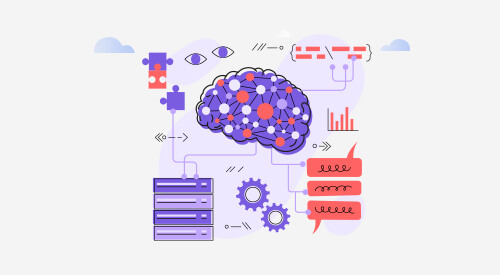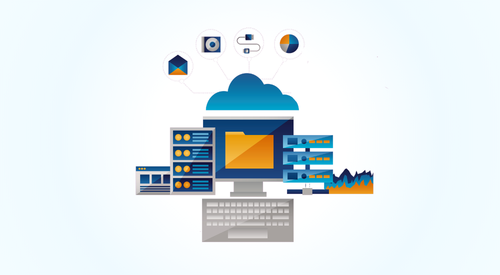

Singapore has carved a niche for itself as a global hub for innovation and readily embraces new technologies. This progressive spirit permeates the business world, where empowering organizations with data intelligence is rapidly becoming the norm. The sheer volume of data generated across various industries in Singapore is constantly growing, presenting both opportunities and challenges.
Navigate Your Data Journey with Niveus Solutions
This is where Data Intelligence steps in. It’s not just about analyzing data; it’s about extracting actionable insights that empower businesses to make strategic decisions. Data Intelligence empowers organizations to move beyond traditional data analysis and unlock the true potential of their information. As Singaporean businesses navigate an increasingly data-driven future, data intelligence solutions and platforms will be crucial for unlocking the power of information and achieving success.
The Rise of Data-Driven Decision Making in Singapore
This shift towards data-driven decision making in Singapore isn’t happening in a vacuum. Let’s delve into the two key factors fueling this rise:
Singapore’s Digital Transformation Push
Singapore’s government has been a driving force behind the nation’s embrace of data-driven decision making. Initiatives like the Smart Nation program aim to leverage technology to create a more efficient, sustainable, and citizen-centric nation. This vision extends to businesses through the Digital Enterprise Blueprint, which encourages companies to adopt digital technologies and processes. These initiatives provide funding, resources, and frameworks to help businesses integrate data analytics and other digital tools into their operations. By fostering a supportive ecosystem for digital transformation, the government paves the way for businesses to leverage data for better decision making.
The Growing Volume and Complexity of Data
Singapore’s thriving economy across various sectors like finance, logistics, and retail generates a massive and ever-increasing volume of data. From customer transactions and financial records to logistics tracking and supply chain data, businesses are swimming in a sea of information. However, this abundance presents challenges. Data quality issues like inconsistencies and inaccuracies can hinder analysis. Additionally, the sheer scale of data can make it difficult to store, manage, and analyze effectively. Scalability becomes a concern as data storage needs grow, and businesses require robust infrastructure to handle complex datasets. These challenges highlight the need for sophisticated data intelligence solutions that can efficiently process and analyze large datasets while ensuring data quality remains high.
What is Data Intelligence and How Does it Benefit Organizations?
Defining Data Intelligence
Data Intelligence goes beyond the realm of traditional business intelligence (BI). While BI focuses on historical data analysis and reporting, Data Intelligence delves deeper. It’s the ability to extract meaningful and actionable insights from vast amounts of data, often in real-time. This is achieved by leveraging advanced analytics techniques like machine learning (ML) and artificial intelligence (AI). These tools enable Data Intelligence to identify patterns, trends, and relationships within data that might be missed by traditional methods. Essentially, Data Intelligence transforms raw data into a strategic asset, empowering businesses to make informed decisions based on concrete insights.
Benefits of Data Intelligence for Organizations
The power of Data Intelligence translates into a multitude of benefits for organizations in Singapore:
- Improved Decision-Making: By gleaning insights from customer behavior, market trends, and operational data, businesses can make data-driven decisions with greater confidence. For example, Data Intelligence can predict customer churn, optimize marketing campaigns, and identify new market opportunities.
- Increased Operational Efficiency: Data Intelligence helps pinpoint inefficiencies and bottlenecks within processes. By analyzing operational data, businesses can streamline workflows, reduce costs, and optimize resource allocation.
- Enhanced Customer Experience: Data Intelligence empowers businesses to understand customer needs and preferences on a deeper level. This enables personalization – from targeted recommendations to proactive customer service – leading to increased customer satisfaction and loyalty.
- Increased Innovation and Competitive Advantage: Data Intelligence unlocks the potential for innovation. By analyzing data and identifying trends, businesses can develop new products and services that meet evolving customer demands. Additionally, data-driven insights allow businesses to anticipate market shifts and stay ahead of the competition.
Implementing Data Intelligence Solutions in Singapore
Building a Data-Driven Culture
The foundation of successful data intelligence implementation lies in fostering a data-driven culture within your organization. This means creating an environment where employees value data-backed decision making and understand how data can be leveraged for success. Here are some strategies to achieve this:
- Employee Buy-in and Data Literacy: Invest in training programs that equip employees with the skills to understand, analyze, and interpret data. This can range from basic data literacy workshops to advanced analytics courses. Additionally, involve employees across departments in the data intelligence process. This fosters a sense of ownership and encourages data-driven thinking throughout the organization.
- Data Visualization Tools: Make data accessible and understandable by implementing user-friendly data visualization tools. Interactive dashboards and reports can help employees quickly grasp complex data sets and identify key insights.
Choosing the Right Data Intelligence Platform
Selecting the right data intelligence platform is crucial for maximizing the value of your data. Here are some key factors to consider:
- Scalability: Ensure the platform can handle your current and future data volume. As your data needs grow, the platform should be able to scale seamlessly to accommodate the increasing demands.
- Security: Data security is paramount. Look for platforms that offer robust security features like encryption, access controls, and compliance with data privacy regulations like Singapore’s Personal Data Protection Act (PDPA).
- User-friendliness: The platform should be intuitive and user-friendly for employees with varying levels of data expertise. This ensures widespread adoption and maximizes the platform’s value across the organization.
There are several popular data intelligence platforms available in Singapore, offering a range of features and functionalities. Consider factors like your specific needs, budget, and technical expertise when making your selection. Niveus Solutions can help you navigate the selection process, ensuring you choose a platform that aligns with your specific goals and data infrastructure. Furthermore, our team of experts can guide you through the implementation process, ensuring a smooth transition and maximizing the return on your data intelligence investment.
Data Security and Regulations in Singapore
Data security and compliance are critical aspects of implementing data intelligence solutions. Singapore’s Personal Data Protection Act (PDPA) regulates the collection, use, disclosure, and protection of personal data. Businesses must ensure they adhere to these regulations when utilizing data intelligence tools. Here are some best practices to follow:
- Data Anonymization: Consider anonymizing data whenever possible to minimize privacy risks, especially when dealing with sensitive personal information.
- Access Controls: Implement robust access controls to restrict access to sensitive data only to authorized personnel.
- Regular Security Audits: Conduct regular security audits to identify and address any potential vulnerabilities in your data security measures.
By prioritizing data security and adhering to regulations, organizations can leverage data intelligence with confidence, unlocking its full potential while maintaining trust with customers and stakeholders.
Conclusion
In conclusion, data intelligence empowers Singaporean businesses to leverage the power of data for informed decision-making, operational efficiency, and a competitive edge. By fostering a data-driven culture and implementing the right data intelligence solutions, organizations can unlock valuable insights and achieve strategic goals. As Singapore continues its digital transformation journey, we can expect even greater adoption of AI and machine learning, further propelling data intelligence as a cornerstone of success. We at Niveus Solutions, with our expertise in data management and platform implementation, can be turnkey partners in navigating this data-driven future.











